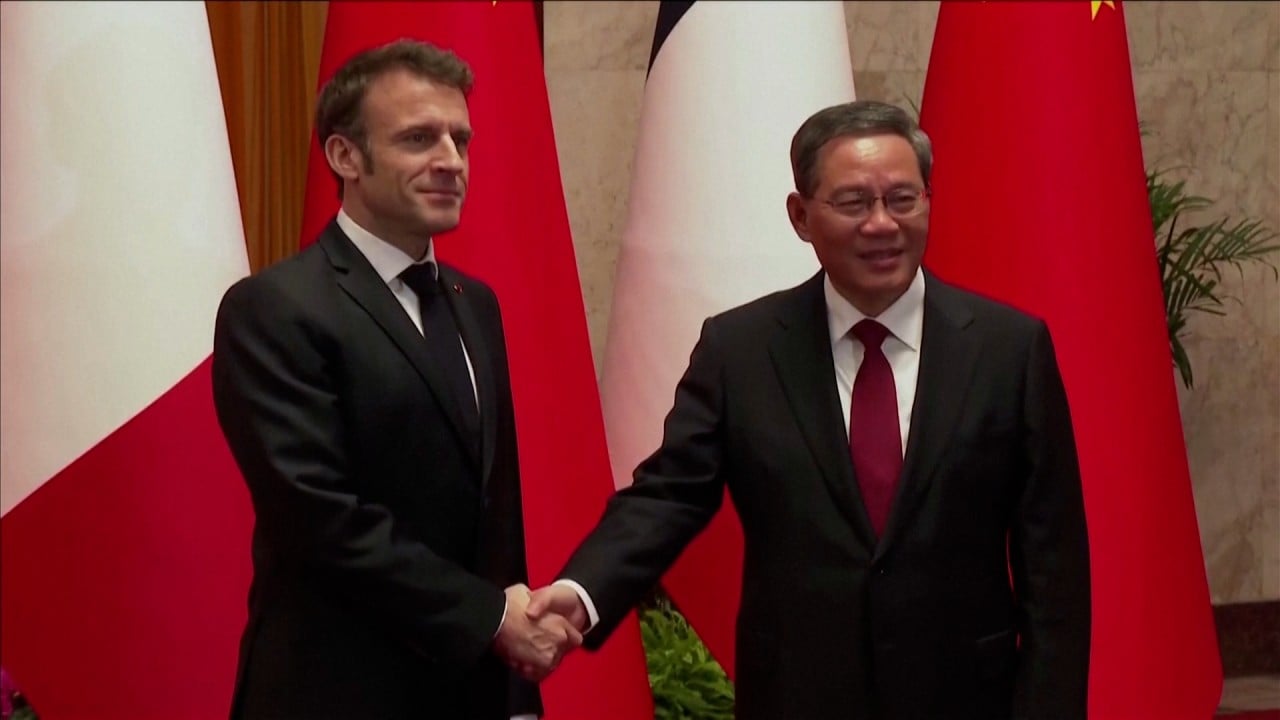
EU says any retaliatory trade probe by China must be ‘based on facts’
- Beijing hints that it will strike back against European trade measures, which include scrutiny of industrial subsidies in China’s electric vehicle sector
- ‘We are going to act if we see objective reasons to act, and we see other countries not following internationally agreed rules,’ says EU’s trade chief
“Something I’ve emphasised in my contacts with Chinese counterparts is that our investigation is going to be based on the rules and based on facts and figures, so it’s not arbitrary,” said Dombrovskis, who is from Latvia.
“Countries may have trade disputes, that is not unheard of, but it’s important that we follow rules and procedures to address them … I am emphasising the need for all sides to stick with a rules-based, facts-based approach.”
He warned Beijing, however, that the bloc would respond if China did not positively address EU demands over market access for European firms in China and overcapacity in the Chinese economy.
“There are no preset timelines … we are doing our assessments and decision-making on a case-by-case basis,” Dombrovskis said when asked how long the EU would give China before taking action.
He added that “we are going to be more assertive and act if we see objective reasons to act, and we see other countries not following internationally agreed rules”.
Dombrovskis was speaking after announcing an update to the EU’s economic security strategy, the flagship element of European Commission President Ursula von der Leyen’s move to de-risk ties with China.
China-EU trade disputes on table as Beijing pursues ‘strategic trust’: analysts
He admitted that some of the bloc’s 27 member states had been “cautious and critical” of a commission plan to implement outbound investment controls on private capital going into some hi-tech sectors in perceived risky markets, such as China.
Capitals have three common complaints, he said.
The first is the question of “competence between the EU and its member states”, with national security powers resting squarely with the 27 member governments. “We do not want to impinge on this competence,” Dombrovskis said.
Other members worried that the economic security drive would “become a pretext for protectionism”, while still more worried about the “administrative burden” placed on national bodies.
Wednesday’s release was meant to address these concerns, launching an extensive consultation and monitoring approach to build a body of evidence for outbound investment trends, Dombrovskis said.

Only after these are complete will the commission “discuss if and what kind of measures we need. I am not rushing to conclusions before we have some data and evidence,” he said.
In a reflection of the challenge facing Brussels in convincing member states, Hungarian Foreign Minister Peter Szijjarto on Tuesday panned its de-risking agenda.
“The ideas of decoupling, de-risking, isolating eastern and western economies are something we definitely do not support,” he said, adding that investment screening was a “political procedure”.
“We see many hostile statements towards the Chinese investments that are sometimes used as instruments by those member states who are not competitive enough,” Szijjarto said.
EU to unveil forced labour ban amid pushback over Xinjiang
As part of Wednesday’s package, the European Commission wants to tighten rules on investments into the EU as well. If approved by members, it would see mandatory screening of all investments into sensitive sectors, including solar photovoltaic and batteries, two industries in which China is dominant.
Dombrovskis also hoped that a forced labour ban will be finalised before elections in June, saying there was a willingness among the European Parliament and Council to come to a common position.
The commissioner, who has already announced that he would run for a seat in the European Parliament in June, said he would welcome the shot at another five-year term in the trade post to deliver the economic security strategy.
“Given the opportunity, I would be interested to continue working in the commission,” he said.


